Liberian maniacs Samuel Doe and Charles Taylor, or The Story of a Failed Democracy
Categories: Africa
By Pictolic https://pictolic.com/article/liberian-maniacs-samuel-doe-and-charles-taylor-or-the-story-of-a-failed-democracy.htmlWhen, in 1822, the US government acquired a piece of land on the Atlantic coast of the African continent for the freed black slaves, they called it Liberia, which means "free" in Latin. The descendants of slaves and former slaves immediately began to enslave and destroy local residents, and the name of the republic sounded like a mockery. It is not surprising that Samuel Doe and Charles Taylor, two maniac dictators, appeared on this land, soaked through with grief and suffering. (Careful! Photos with scenes of cruelty).
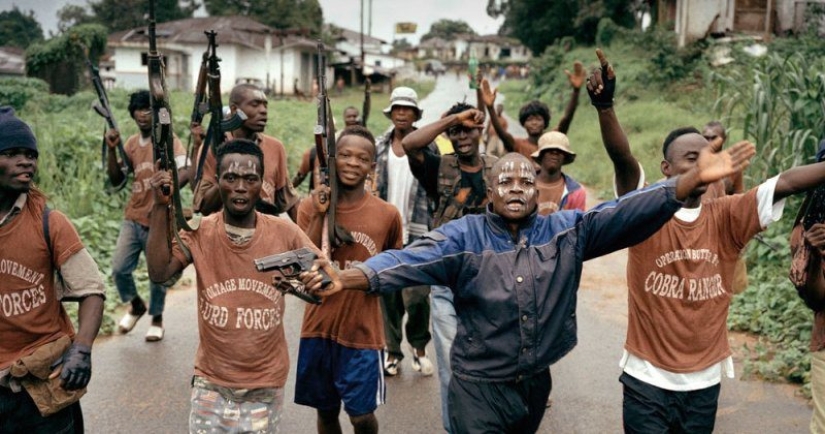
Despite the fact that there has never been an idyll in Liberia, the turn of the millennium for its inhabitants turned out to be the most unpleasant period in the history of the country. For 20 years there was a civil war, during which one or another bloodthirsty leader came to power, and the population was exterminated with incredible speed.

The beginning was laid in 1980, when the so-called "drunken coup" took place. The coup happened almost spontaneously — a group of military men, after gatherings in one of the bars of Monrovia, was drawn to adventures. They did not come up with anything better than to commit a coup and stormed the presidential palace.
The ringleader was Sergeant Samuel Doe — whose ambitions were fueled by an impressive dose of alcohol. The government turned out to be so careless that the rebels could not give a decent rebuff and President William Tolbert, along with his family and assistants, fell into the hands of drunken soldiers.
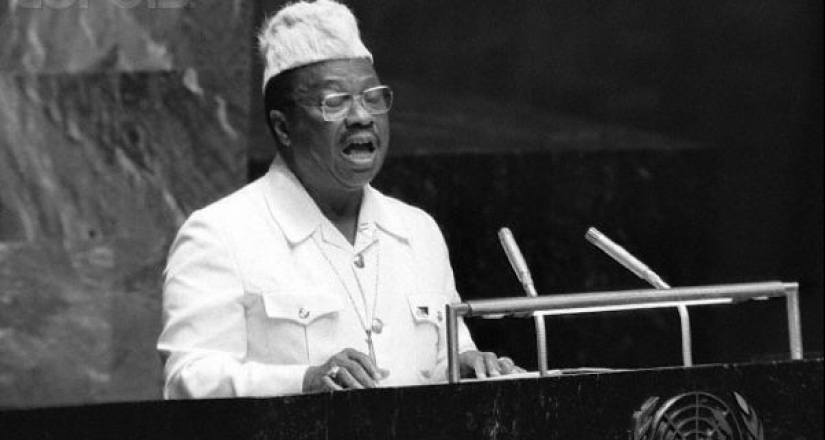
Liberians did not hear about mercy to the vanquished, and even more so about humanism, so all the prisoners were immediately killed, and the unfortunate head of state was quartered. Liberians, anticipating changes, welcomed the coup — they had a hard time under Tolbert. But they did not even imagine what awaits them in the future and what "prosperity" the new government is preparing for them.
In general, any initiatives in Liberia, from the very moment of the foundation of this state, have been good. At the same time, the creators of the African republic can still be suspected of a protracted and extremely unsuccessful experiment. The American authorities, who created this artificial state, gave them a similar to their flag and an almost exact copy of their own constitution.
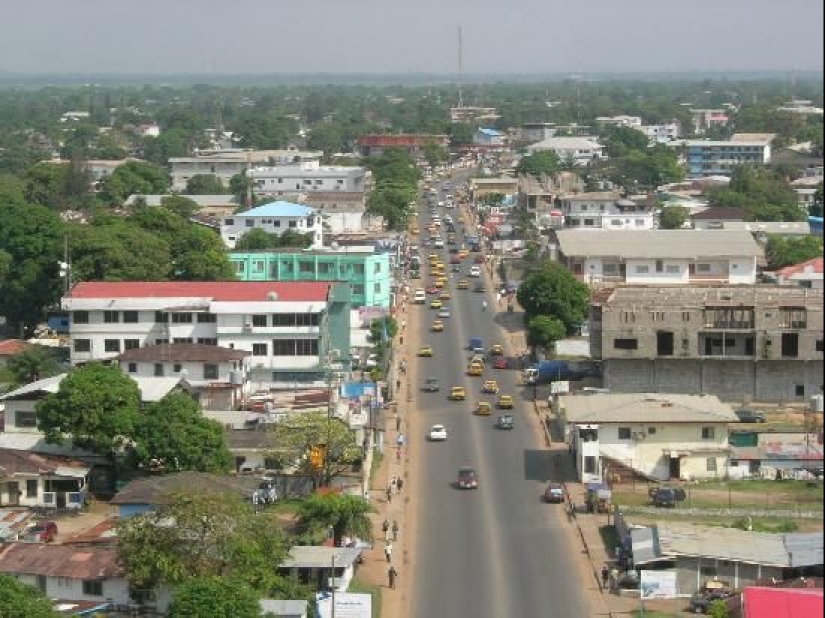
African-Americans who arrived on the tropical paradise coast from across the ocean met here the people of the Crane tribe, who were not distinguished by belligerence. Having quickly figured out what was what, the former slaves declared the indigenous population to be third-class people and made them their slaves. Those representatives of the Crans who managed to preserve their freedom could not even think about getting equal rights with the colonizers and even more so to participate in the governance of the country.
It was to the local population that Sergeant Samuel Doe belonged, whose career, if not for the coup, was unlikely to be successful. Among the slogans of the putschists were calls for equality, and this is a sore topic for the Crane tribe, so the local population welcomed the overthrow and execution of Tolbert and his team.
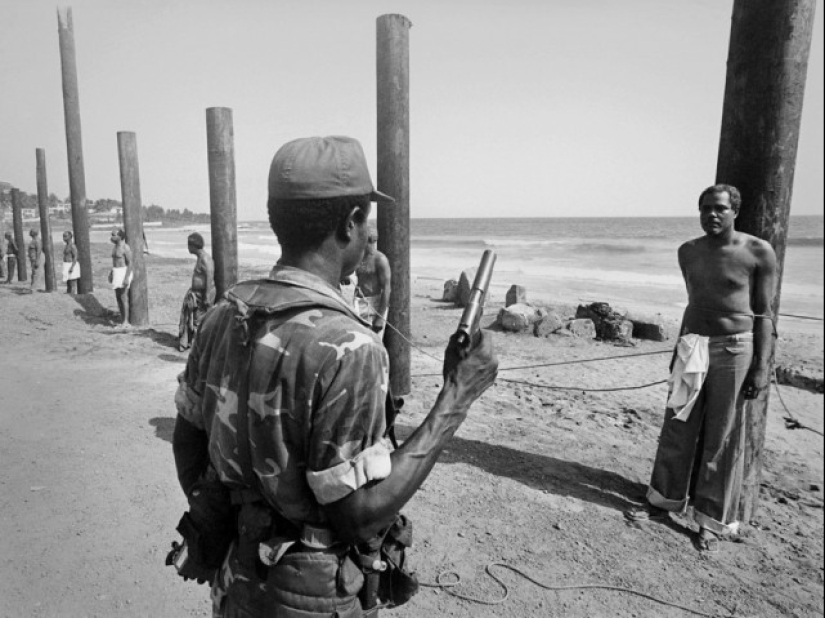
In the United States, they also bought into the speech of Sergeant Doe, who has already awarded himself the rank of general and organized the National Salvation Council of Liberia. President Ronald Reagan addressed Congress with words of support and promised reformers comprehensive assistance:
Thus, the long-suffering Liberia has again become a testing ground for experiments on "democratization" and again unsuccessfully. Samuel Doe broke all the records of degradation — the path from a fiery defender of democracy to a bloodthirsty dictator took him only 5 years. Of course, he lost the limit of trust of his overseas friends, but by this time the sergeant felt quite confident without them.
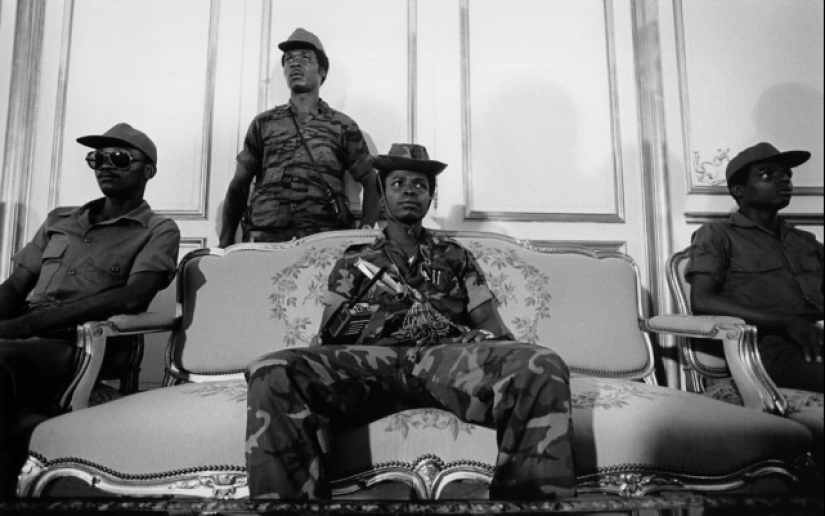
First of all, Doe rigged the presidential election. He not only falsified its results, but also attributed to himself an extra year, since according to the country's constitution, only citizens who had reached the age of 35 could participate in the elections. The obvious violations caused mass protests and the opposition immediately appeared in the country, which began to arm itself promptly.
After the former sergeant officially headed the country, there could be no question of any reforms and improvements. The United States allocated substantial sums to its dominion, but they were immediately plundered by the president and his inner circle. At the same time, complete chaos ensued in the country's already lame economy, plunging even those few Liberians who were considered wealthy into poverty.
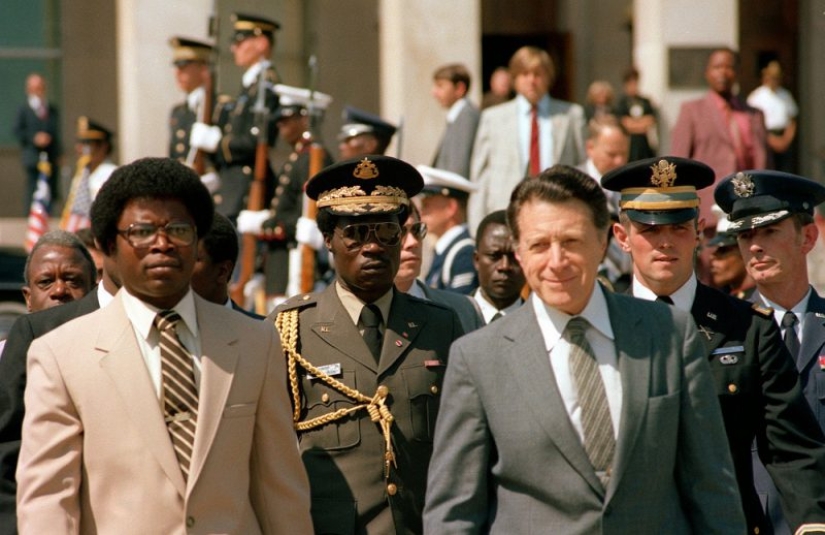
In order to somehow maintain his reputation, Doe arranged "demonstrative floggings", dismissing his ministers for corruption and throwing them into prison. One of the accused of embezzlement of budget funds was the former Minister of Infrastructure Charles Taylor. The official did not wait for the arrest and fled to the United States, where he was still put behind bars. But it was safer in an American prison than in the best apartments in Monrovia, so Taylor wasn't particularly outraged.
In Liberia, coup attempts and assassination attempts on the Doe President followed one after another. Each organizer of the rebellion promised freedom and equality to the people and high positions in the government for his henchmen. The head of the country managed to more or less successfully fend off attacks, arranging mass shootings of oppositionists and citizens sympathizing with them.
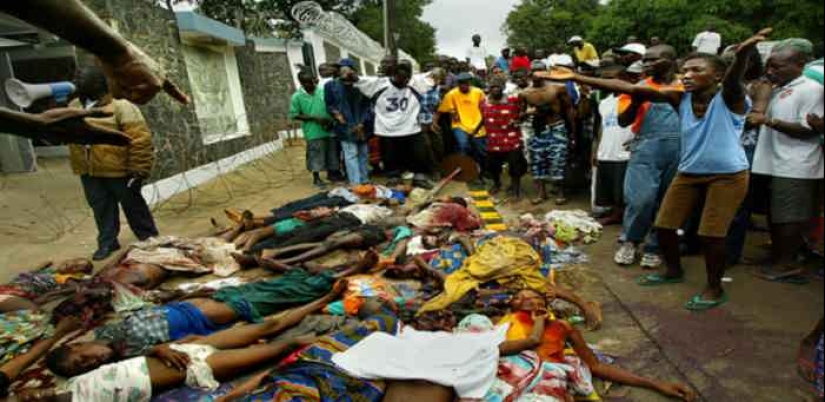
Meanwhile, Taylor escaped from an American prison, and then from the United States. The story of the escape was sewn with white threads and everyone perfectly understood that the CIA simply decided to find a replacement for the thief and murderer Samuel Doe. The former infrastructure minister suddenly turned up in Libya, in one of Gaddafi's military camps.
There, among the ardent supporters of the pan-African dream, Taylor gained military knowledge and began in 1989 to form the army of the so-called National Patriotic Front of Liberia. In December of the same year, the NPFL units crossed the border of Liberia from the Republic of Ivory Coast and rapidly began to move towards the capital.
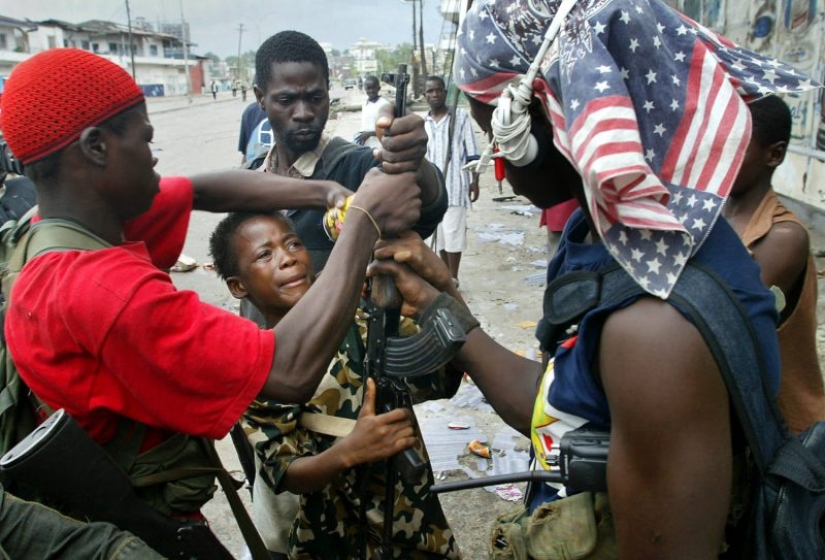
Seeing that Taylor was gaining the upper hand, Doe decided to retain power at any cost and called on his opponent to jointly search for a compromise. But the disgraced minister was adamant and he was satisfied only with an absolute victory. The president's efforts in search of support ended in a terrible tragedy that shocked the entire civilized world.
One of Taylor's field commanders named Prince Johnson, who broke away from the NPFL, appointed a meeting for the head of the country on neutral territory, at the UN mission. The president, having decided that he would be able to find a new ally, went to a meeting, where he was immediately wounded in the leg, tied up and abducted.
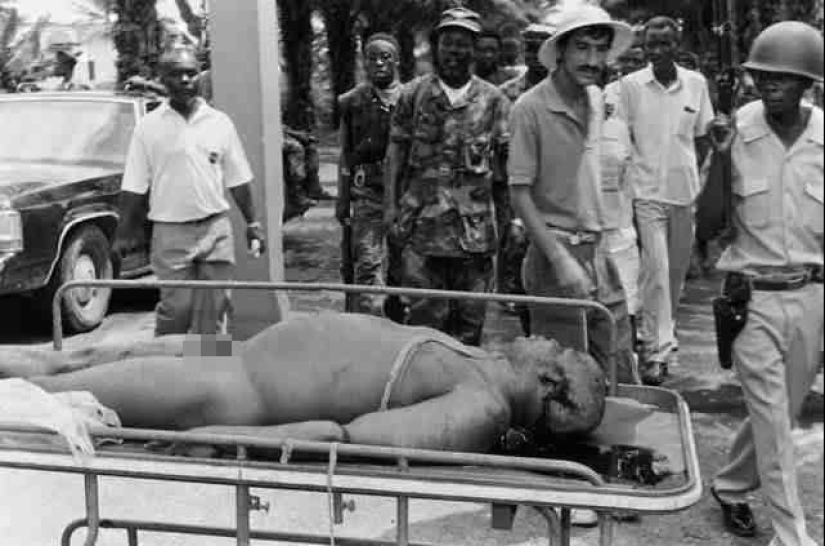
Samuel Doe was brought to a secluded place where video equipment was placed and there was a solid set of torture instruments. Prince Johnson, drinking a cold beer, personally supervised the interrogation of the president. First of all, he was interested in bank account numbers and access to them. During a leisurely conversation, Doe was first beaten with his hands and feet, and then his ear was cut off and forced to eat it.
After that, the politician is broken both hands, and then castrated, which causes him to die. The entire process of "peace negotiations" was impartially recorded by cameras, and tapes of the bloody murder were scattered all over the world. But Doe's death did not improve the situation in the country and soon as many as 7 fronts were fighting for leadership in Liberia, which had the words "democratic", "liberation" and "people's" in their names.
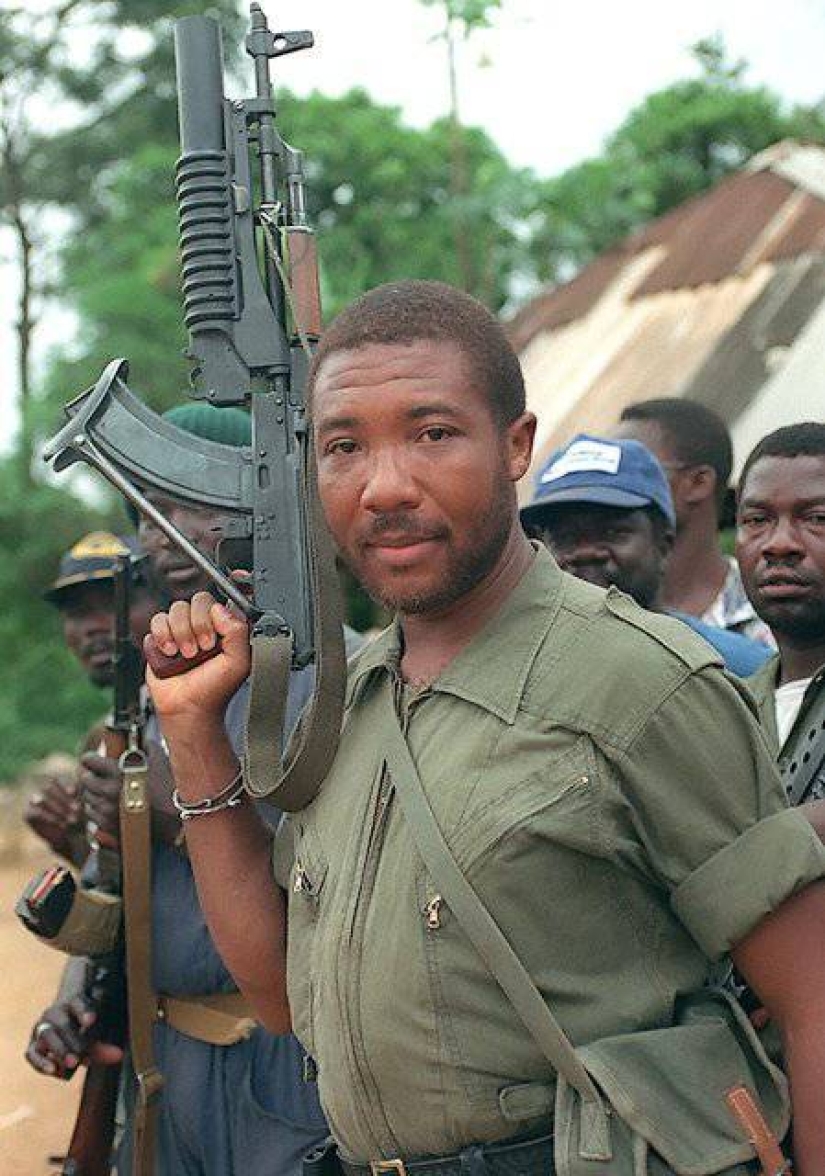
Charles Taylor, in the face of increased competition, found it difficult to stay afloat and he resorted to a method proven on the Black Continent. NPFL detachments attacked villages and took children and teenagers from them to replenish their ranks. Taylor himself pathetically called the forced young wrestlers "wild dogs of war", but, in fact, it was expendable material that no one mourned.
The passion for kidnapping children led to the fact that Taylor got the nickname "daddy" and they began to scare naughty children not only in Liberia, but also in neighboring Ivory Coast and Sierra Leone. The massacre, which claimed more than 150 thousand lives, lasted for almost 7 years, until the peacekeepers of several countries of the world put an end to the civil war.
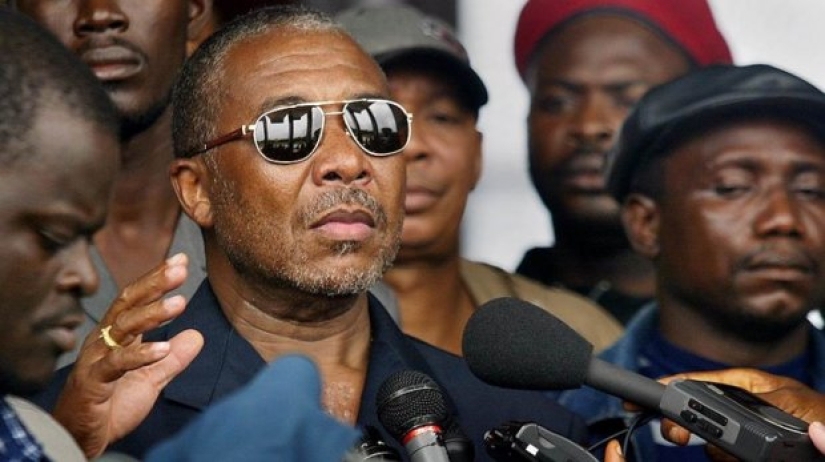
Another democratic election was held in Liberia, in which Taylor's dad participated under the shocking slogan: "He killed my mom and killed my dad, but I vote for him to stop the war." Despite the participation of 13 candidates, Taylor confidently won the presidential race and led Liberia into another round of despair and poverty.
Charles Taylor did what he did not have time to complete the Doe — he finished off the country's economy and destroyed the remnants of order on the streets of Liberian towns and villages. The country was flooded with motley gangs that robbed and killed people. Some of them reported personally to the president and the fact that everyone knows this in no way embarrassed the leader.
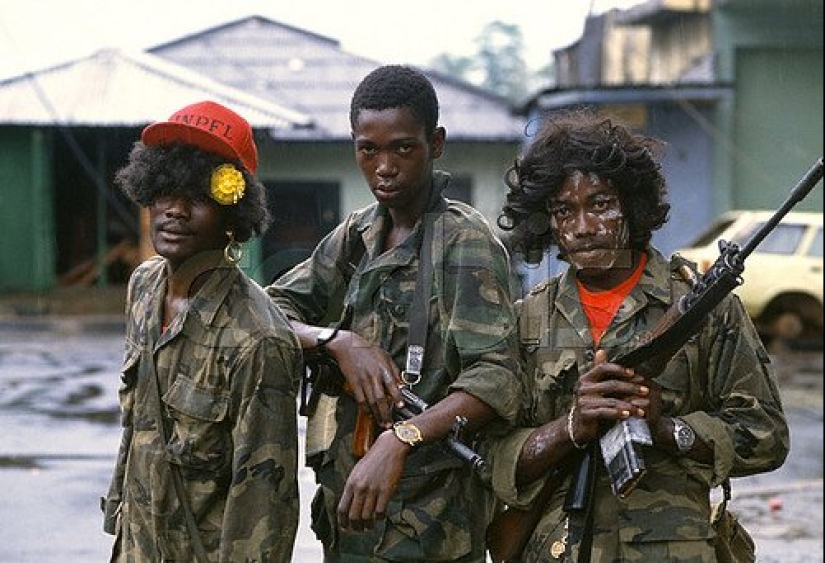
But Taylor had nowhere to turn around in his small and plundered country, so he decided to "bring democracy" to his neighbors by supporting their revolutions. Special attention was paid to Sierra Leone, where Fodi Sankoh, Taylor's acquaintance from the Libyan camp, fought with the authorities like a lion. This is another bloody executioner who did not disdain to take children from their parents by force for their combat units.
Sanko people appeared from the jungle and took children and teenagers from 10 to 15 years old in the village. Women were raped, and men, so that they could not take revenge or fight on the side of the enemy, were mutilated by cutting off their hands. Sanko Taylor armed people, and in return in Diamonds were sent to Monrovia from the mines looted in the neighboring country.
For diamonds, the bloodthirsty Liberian king bought himself the respect of not too clean politicians around the world, as well as the favor of movie stars and the podium. Among the "friends" of Taylor's dad was even Naomi Campbell, who did not refuse precious gifts, even knowing their origin.
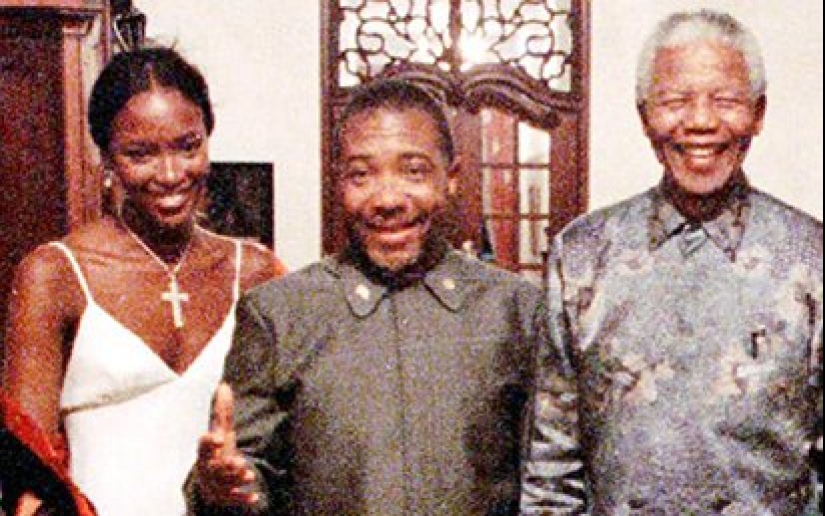
If the world community turned a blind eye to the arbitrariness of Taylor's father in Liberia, then his financing of wars in neighboring countries forced him to take measures. First, the Liberian president's considerable accounts in European banks were arrested, and then the country was imposed with such heavy sanctions that even his associates began to look askance at the head of the country.
Not wishing himself the same martyrdom that befell Doe, Taylor quickly resigns his powers and flees to Nigeria with the loot. This country did not want to extradite the fugitive for a long time, but under the threat of sanctions, it still agreed to extradite. Taylor almost managed to escape this time, but he was intercepted on March 28, 2006 at the border of Nigeria with Cameroon.
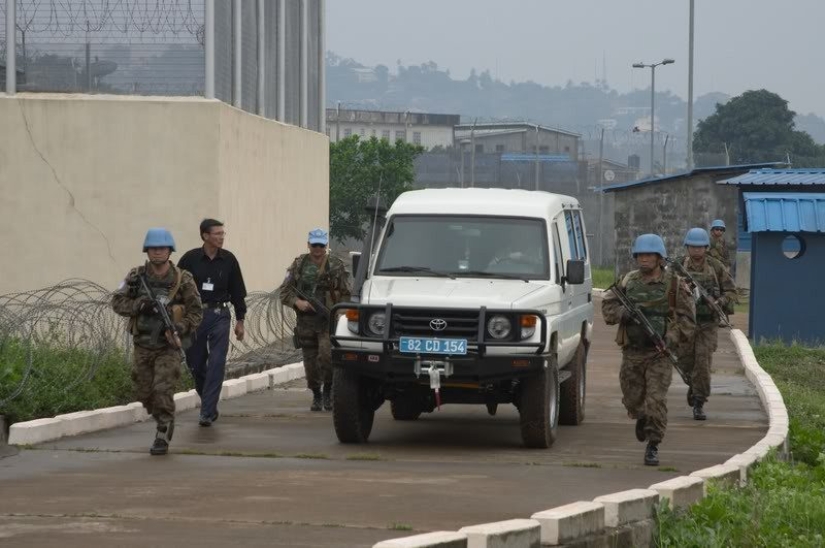
The "diamond" president was taken to The Hague, where he immediately began to deny and pretend to be a victim. The trial was protracted and complicated, and those who accepted the dictator's gifts had to answer the investigators' questions. Naomi Campbell also had to testify in this case, which greatly affected her reputation.
As a result, in 2012, the court sentenced Richard Taylor to 50 years in prison, which for an elderly dictator was equivalent to a life sentence. The trial of the former Liberian president was indicative — for the first time an African king was found years after committing atrocities and convicted as a warning to other dictators.
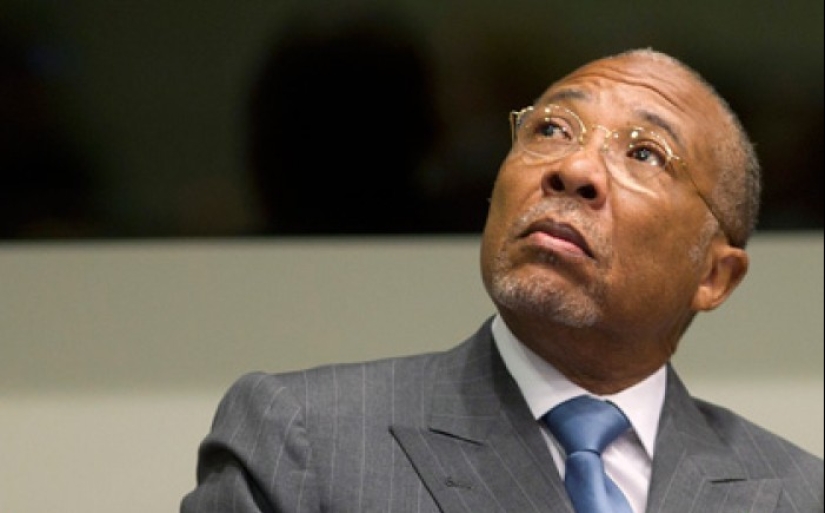
It should also be noted that this was the first case in modern history when a head of state was convicted, not counting the Nuremberg trials, where Hitler was convicted in absentia. Working out this difficult procedure will be useful to the judges from The Hague more than once, because the world is still full of political leaders with manic syndromes.
Recent articles

It's high time to admit that this whole hipster idea has gone too far. The concept has become so popular that even restaurants have ...

There is a perception that people only use 10% of their brain potential. But the heroes of our review, apparently, found a way to ...

New Year's is a time to surprise and delight loved ones not only with gifts but also with a unique presentation of the holiday ...